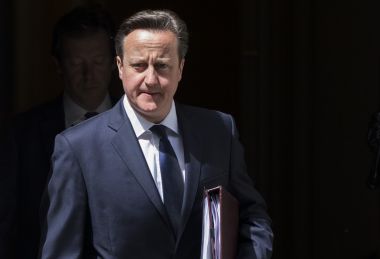Is the Church of England too left-wing?

The Church of England has once again had to defend a political intervention it has made.
Last weekend 84 bishops signed a letter urging the Prime Minister to accept 10,000 refugees every year of this parliament, making the total a minimum of 50,000 by the 2020 election, rather than the 20,000 David Cameron had pledged.
The backlash from the Conservative government and much of the political commentariat has been so severe that Nick Baines, the bishop of Leeds, has felt the need to defend the Church of England as not being anti-Tory.
"To be portrayed (by some people who should know better) as anti-Conservative is wrong, lazy and ridiculous," said a clearly irritated Bishop Baines in the Yorkshire Post.
"Every government of every shade thinks the Church is against them."
But this won't persuade some who are convinced the Church of England is institutionally left-wing. Tim Montgomerie, founder of ConservativeHome, "sighed" when he heard of the bishops' letter.
"Attacking Tory governments is what today's Church of England does," his response read.
One government minister apparently said, "we don't give a s*** about the bishops," according to the Telegraph which reveals a general attitude within the Conservative Party that the Church of England is left leaning, soft and should be dismissed as irrelevant.
So is this fair? Certainly some leading figures have not hidden their socialist leanings. The Archbishop of York, John Sentamu, edited a book published last year which characterised the welfare state as the embodiment of the Christian command to "love your neighbour."
"That sounds extremely left wing doesn't it?" he said in an interview with the Telegraph at the time. "The truth is it is the theology of where I am coming from."
He is not alone. The bishop of Manchester is another example of an Anglican leader not afraid to voice his opposition to Tory economic policies in favour of overtly left-wing options.
But what about the institution? Is the Church of England institutionally left-wing? Or more specifically, have the two biggest political interventions by the Church been overtly left-leaning? If so then with a Conservative government guaranteed until 2020 and probably until 2025, the Church can look forward to a long period of political isolation.
However I don't think it is.
Certainly the CofE has an institutional bias towards the poor. The Church is more inclined to wade in politically on issues of injustice or abuse than it is on issues of economic growth.
The fact that those are considered to be 'left-wing' issues says more about the failure of the Conservative Party to walk its "one-nation" talk than any political bias within the Church of England.
The sad reality is that when someone talks about poverty, oppression, social justice, class divide and community breakdown (all of which featured in the Church's pre-election manual) people's instinctive reaction is to think you are left-wing.
The reason this is such a tragedy is that the Conservative Party actually has a very strong message on relieving poverty, overcoming oppression, bringing about social justice and tackling class divide and community breakdown. But no one talks about it.
It is a message that focuses on families, not the State, as the foundation to social stability. It says that local communities and charities are better at tackling poverty than an unwieldy Whitehall administration. It encourages growth in private sector employment as a better way out of poverty than increasing benefit handouts. It tackles educational failure so all pupils can gain the skills they need to provide for their loved ones and contribute to their communities.
This is roughly the ideology of the Conservative approach to poverty. Now it may be wrong. Many may disagree with it. But it exists nonetheless. The fact that the Tories can be reasonably branded as not caring about the poor is catastrophic for their future.
David Cameron took over with a strong message of social transformation. The message was he would be as much of a social reformer as Margeret Thatcher was an economic transformer. But since then the party has reverted to type and has talked almost exclusively about economic stability and growth since 2008.
So it is not surprising that when the Church dives in to the political arena and talks about poverty and oppression, the consensus is that it is left-wing.
The Church of England is institutionally compassionate but not institutionally left-wing. It is up to the Conservative Party to demonstrate the left does not have a monopoly on this area.











